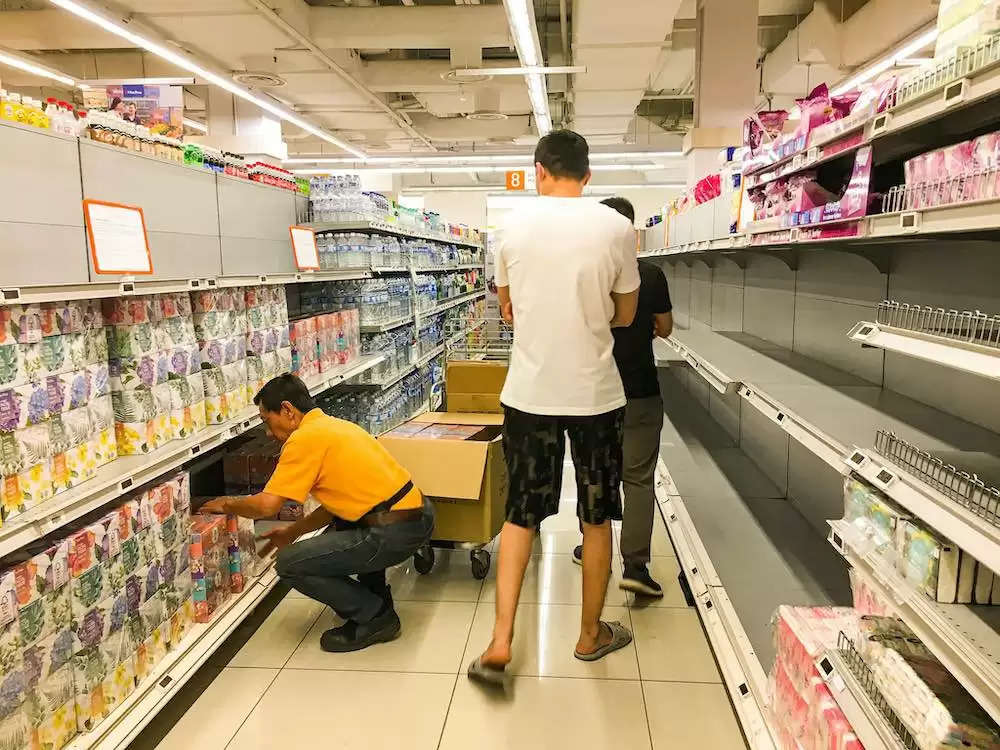Fears of a hard lockdown prompt panic shopping in Beijing as Covid prices rise.

Fears of a hard Covid lockdown prompted panic shopping in Beijing on Monday, with enormous lines forming for mandatory mass testing in a large central district.
China is already battling an outbreak of illnesses in Shanghai, which has been nearly completely shut down for weeks and has reported 51 additional Covid deaths as of Monday.
VIDEO: Beijing residents rush for groceries as Covid cases rise.
— AFP News Agency (@AFP) April 25, 2022
On Sunday, Beijing warned of a "grim" situation. The harsh lockdowns and mass testing of China's strict zero-Covid policy is taking a heavy toll on public morale and businesses in the world's second largest economy pic.twitter.com/qRtrd62G2X
Residents scrambled to stockpile goods after the mass testing order and predictions of a "grim" Covid situation in the city spurred a rush to Beijing's stores overnight.
After the testing order was announced on Sunday night, many items on grocery delivery apps sold out briefly, but stocks were restocked on Monday.
GETTING THINGS QUICKLY
Zhao, a Beijing resident, went to a grocery shop on Monday and bought many bags of groceries, including eggs and fresh vegetables, after learning of the mass testing order.
If the family was told to stay at home, the 31-year-old said he wanted to make sure his toddler had enough to eat.

"Adults can survive for a few days, but children cannot," Zhao told AFP, who only wanted to be identified by his surname.
Another supermarket patron, Wang, expressed concern that "things will become like in Shanghai."
"Everyone is picking up stuff, and we're scared that items may run out," a 48-year-old Chaoyang resident explained.
Her family had stocked up on food for a week.
Shanghai has struggled to provide fresh food to those detained at home, and patients have reported difficulty receiving non-Covid medical care, prompting fears of a similar lockdown in the capital.
Residents and visitors to Beijing's most-populated neighborhood, Chaoyang, which has a population of roughly 3.5 million people, will be subjected to mass testing beginning Monday. Many global corporations and embassies have their headquarters in the neighborhood.
People waited to be swabbed for samples by health professionals in protective gear as lines snaked around malls and outside office complexes on Monday.
"If a single case is found, this area could be affected," said office worker Yao Leiming, 25, as he and a group of his coworkers drove to a testing site in Chaoyang.
INTERNAL LOCKDOWN
At least one housing block in Beijing has been closed, while other fitness studios and gyms in the city have canceled or suspended sessions.
Beijing has also tightened entrance restrictions, requiring travelers to obtain a negative Covid test within 48 hours of arrival.

Following a warning from health officials that the virus has been circulating undetected for days, the capital has reported scores of cases in the last week, including 14 new illnesses on Monday.
However, Beijing's figures pale in comparison to Shanghai, which has had more than 500,000 instances since March 1.
Despite weeks of stringent restrictions, the 25-million-strong economic powerhouse is failing to contain China's largest outbreak in two years.
China has implemented lockdowns, mass testing, and travel restrictions as part of its zero-Covid goal to eradicate all infections.
Officials claim that this policy helped the country avoid the public health issues that occurred elsewhere throughout the world during the epidemic, but it has had a significant negative impact on companies and public morale.
Over the weekend, the term "hard lockdown" became popular on Chinese social media when photographs emerged from Shanghai showing officials securing building gates with metal sheets.
Fears and concerns over the barricades were spurred by a residential building fire on Saturday, with Chinese business magazine Caixin claiming that various Shanghai neighborhoods were closing minor roads with barriers and fences.
In photographs shared on social media, similar walls were seen erected around buildings. Streaming video.
.png)